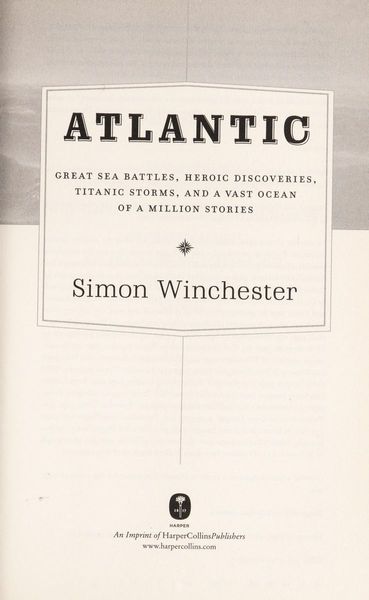
Atlantic Great Sea Battles, Heroic Discoveries, Titanic Storms,and a Vast Ocean of a Million Stories
Atlantic is a biography of a tremendous space that has been central to the ambitions of explorers, scientists, and warriors, and continues profoundly to affect our character, attitudes, and dreams. Simon Winchester makes the Atlantic come vividly alive. Spanning the ocean’s story from its geological origins to the age of exploration—covering the Vikings, the Irish, the Basques, John Cabot, and Christopher Columbus in the north, and the Portuguese and the Spanish in the south—and from World War II battles to today’s struggles with pollution and overfishing, his narrative is epic, intimate, and awe inspiring. More than a mere history, this is an unforgettable journey of unprecedented scope by one of the most gifted writers in the English language.
Reviews
Chris Aldrich@chrisaldrich
Bryan Alexander@bryanalexander
Pierke Bosschieter@pierke